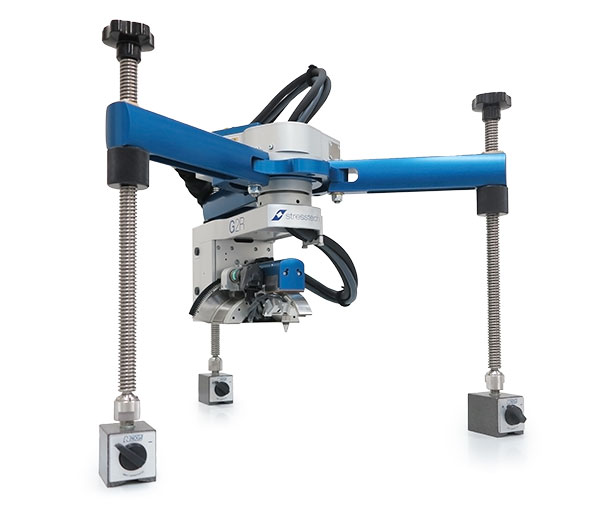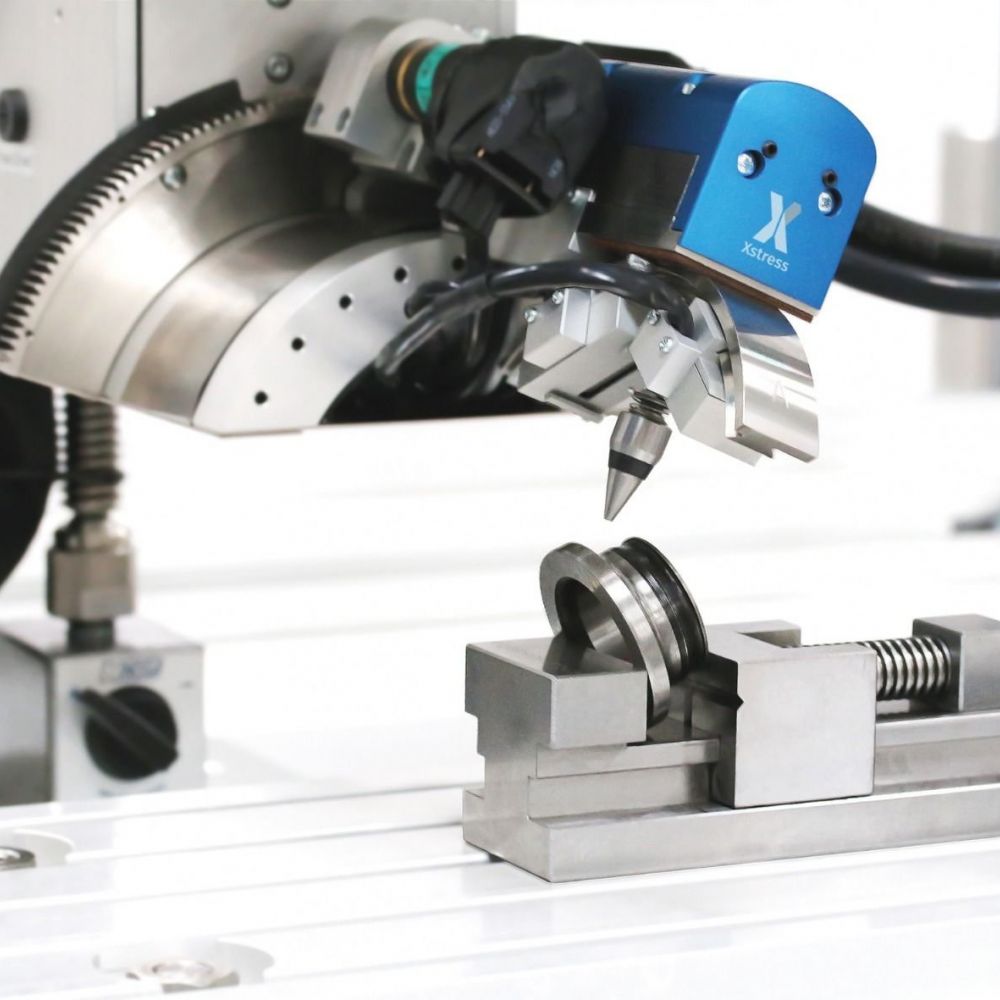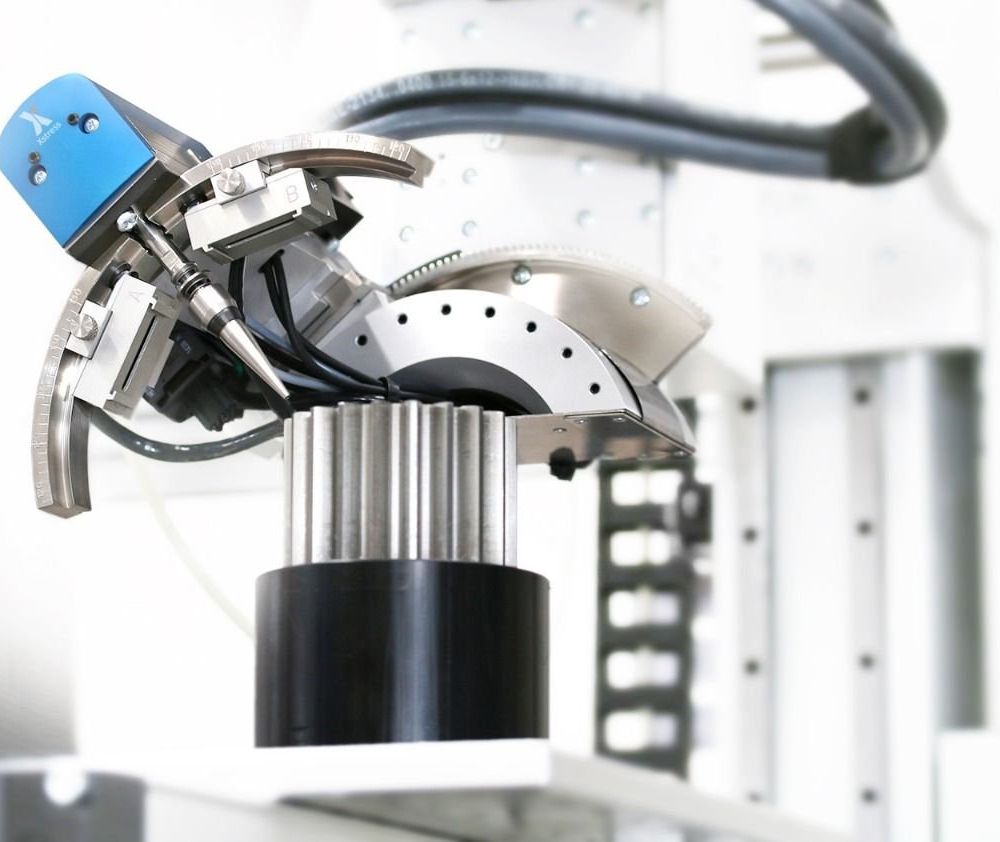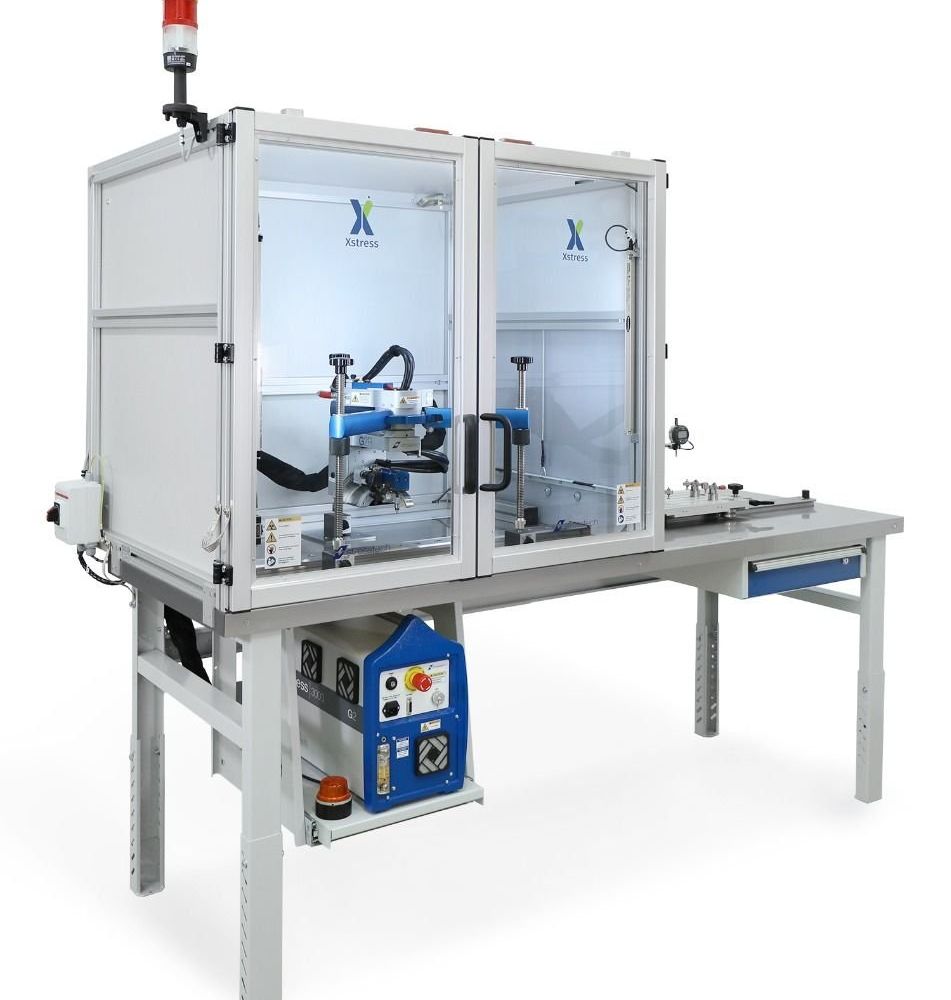Xstress G2R

X-ray diffractometer Xstress G2R represents advances in design and construction, which provide enhanced reliability and function in a truly portable residual stress and retained austenite analyzer. Bi-axial and tri-axial stress state analysis is effortless and automated with rotating diffractometer.
- Non-destructive
- Suitable for laboratory, factory and field use
- Rotating diffractometer enables bi-axial and tri-axial stress state analysis
- Quick assembly, ready to use in 10 minutes
- Easy replacement of X-ray tube (Cr, Cu, Co, Fe, V, Ti, Mn) which enables measuring different materials
- Measurement distance 50 mm
- Two NMOS position sensitive detectors
- Instantly adjustable 2θ-angle
- XTronic software for running the measurement and calculating residual stresses and retained austenite content (optional)
- d-sin²χ and Ω-measurement modes as a standard
Features
Two symmetrically positioned NMOS position sensitive detectors
- standard detector width 15°
- for other detectors see options
2θ-range of the detectors
- continuously adjustable within 110° to 165°
- lower angles as option with special detector arcs
Standard measurement distance 50 mm
Replaceable collimators
- 1/2/3/4/5 mm spot sizes
- special collimators available as an option
X-ray tube
- Cr-tube as standard: max. output 30 kV/9 mA/270 W
Automated rotation unit
- Rotation angle range +/-180°
- Rotation oscillation, automatically selectable +/-180°
Xstress main unit (high voltage generator)
- X-ray power supply 5–30 kV/0–10 mA freely adjustable within limits
- self-contained liquid cooling system
- includes all interlocks required for complete safety
- universal power input
XTronic software
- fully featured Windows software using thread based multi-tasking
- hardware operation control: detectors, DC motors, power supply, shutter, safety interlock functions, voltage and current, etc.
- automated calibration with zero stress powder samples to set diffractometer to sample distance
- project manager for depth distribution measurement and all kinds of mapping measurements
- library functions for material parameters
- modified d-sin2χ and Ω-mode
- peak shift determination with the most known methods such as cross-correlation and peak fit methods
- peak fit with eight different functions and three background options: Gauss, Lorentz, Modified Lorentz, Intermediate Lorentz, Pearson VII, Split Pearson VII, Pseudo-Voigt and Split Pseudo-Voigt
Safety
ANSI N43.3 – 1993
- Meets or exceeds ANSI N43.3 – 1993 and other industry standards for open beam X-ray operation.
- X-ray diffractometer safety regulations in general






